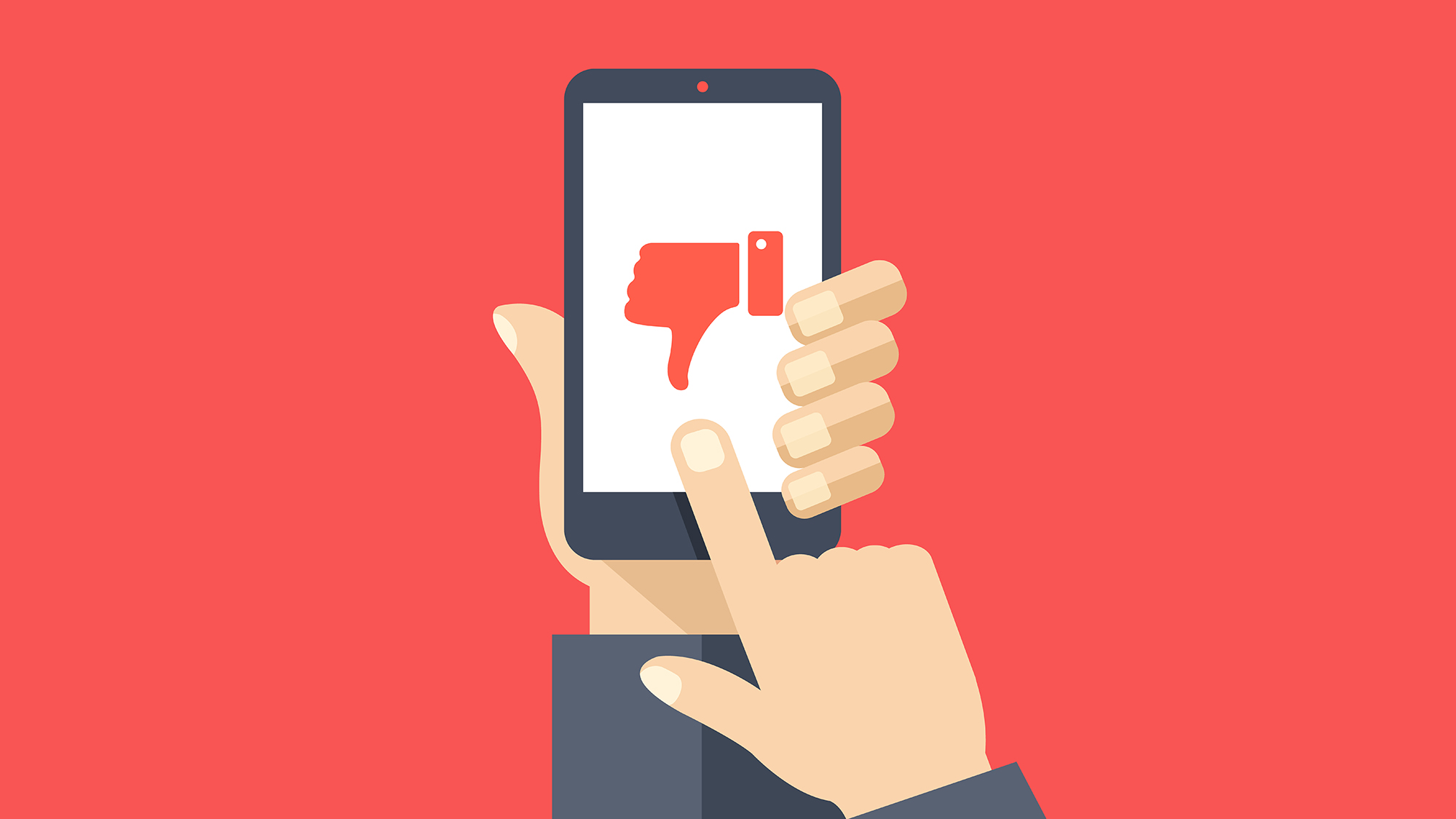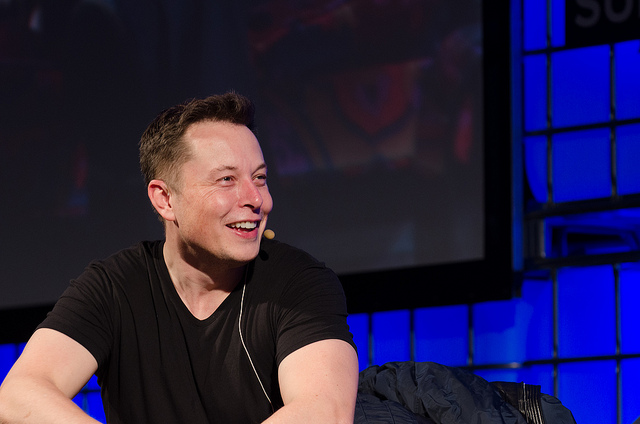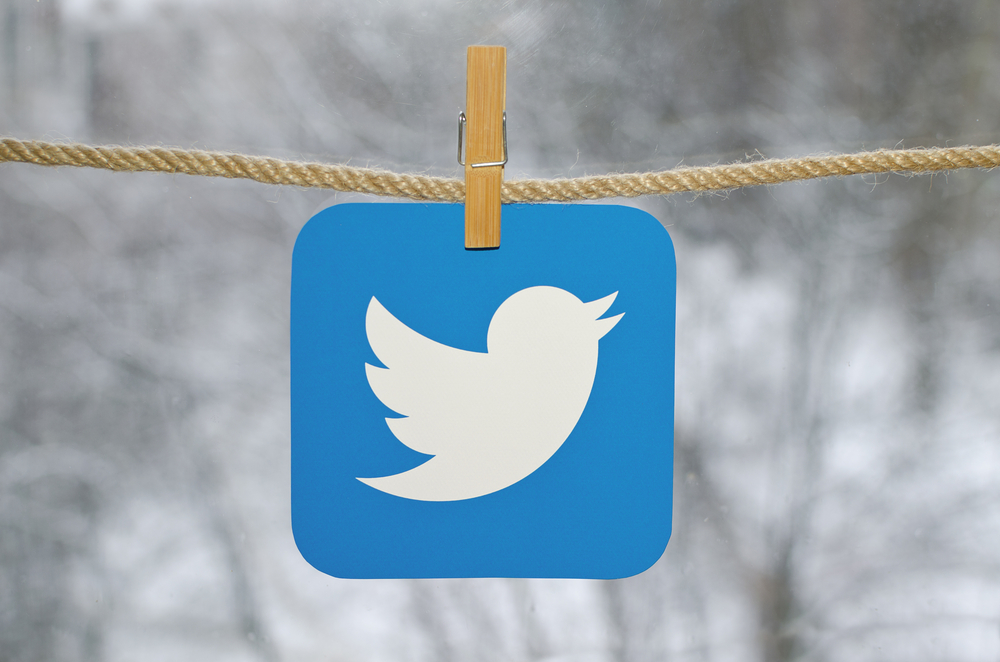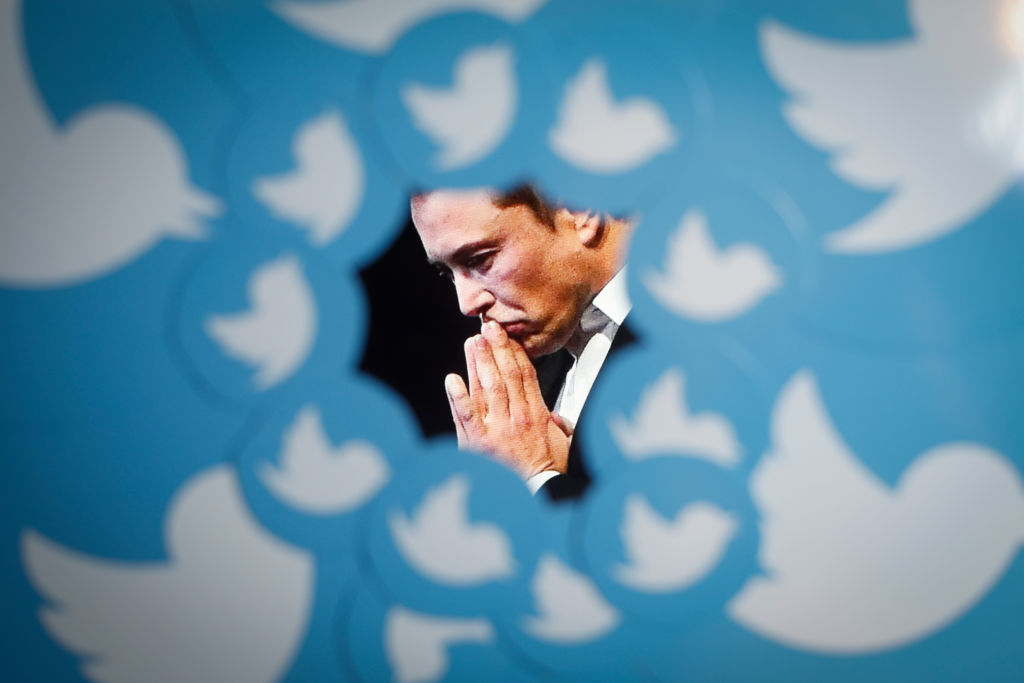Social media and the death of truth
Facebook and Twitter have corrupted public discourse - it’s their responsibility to put it right


There’s a quote I first came across on Twitter during the context of a political scandal of some description that I keep coming back to. While the furore it refers to has now faded from memory, buried beneath an endless onslaught of controversies, the quote has stuck with me.
“If someone says it’s raining and another person says it’s dry, it’s not your job to quote them both. It’s your job to look out the window and find out which is true.”
It’s attributed to retired American journalism professor, Jonathan Foster, and illustrates the difference between balance and fairness, and how the quest for balance can often get in the way of the truth. Although the quote is about the practice of journalism, it's becoming increasingly applicable to social media, too. The world’s two biggest social media companies have once again been dragged into a public debate on whether or not they have a duty to hold their users to some standard of truth - sparked, of course, by one user in particular.

US president Donald Trump this week signed an executive order seeking to strip social media companies in general – and Twitter in particular – of the legal protections they enjoyed as public forums, rather than editorial publishers. His argument is that, by adding a small label to his demonstrably false and deliberately misleading public statements, Twitter is essentially taking an editorial stance.
This sounds ridiculous on its face; after all, how can fact-checking be a partisan issue? The sad reality, however, is that truth has become a partisan issue, and it’s largely the fault of social media companies.
Attention has been the currency of the internet for decades; since advertising is how the vast majority of websites pay their bills, they need to attract as many eyeballs as possible, and so sensationalism and hyperbole has been the overall tenor of the internet. Everything on the internet is the BEST THING EVER, or the ABSOLUTE WORST. Stories will SHOCK or DISGUST you; there is simply no middle ground.
This general tone has been the background radiation of internet discourse for years, but it’s been amplified beyond recognition by social media. Like every other online service, these companies need to keep users on their platforms as long as possible, so highly-shareable, viral content is promoted, rewarded and optimised for maximum transmission.
Get the ITPro daily newsletter
Sign up today and you will receive a free copy of our Future Focus 2025 report - the leading guidance on AI, cybersecurity and other IT challenges as per 700+ senior executives
When this is cute cat videos or a ten-hour loop of Masterchef’s Gregg Wallace saying ‘buttery biscuit base’, this isn’t really a problem. Sadly, joy isn’t nearly as powerful an emotion as anger, and posts designed to shock and outrage are much more likely to be virally spread than harmless memes. The upshot of this is that social media has become increasingly toxic – a phenomenon that has been well-documented.
But it was in 2016 that the lid was truly lifted on this simmering digital cesspool.
On either side of the Atlantic, two separate political events took place that year that fundamentally altered the rules of society. Suddenly, blatant outright lies became an accepted political tool. In saner times, inflammatory and provably false claims were the sole province of conspiracy theorists and rabble-rousing demagogues, but from 2016 onwards, they’ve been a key part of mainstream political debate.
It’s easy for both users and providers of social media to dismiss wild pronouncements about political issues – such as the idea that the royal family murdered Princess Diana – as the ravings of online lunatics. When similarly wild allegations are coming from news broadcasters and world leaders, that background radiation of conspiracy theories and outright lies turns into a full-blown Fukushima of falsehoods, and the concept of truth itself has been so poisoned that any evidence contradicting a particular worldview can simply be dismissed as biased propaganda, or a lie itself.
Today, Trump constantly makes untrue statements about everything from mail-in ballots being rigged to a news anchor murdering his employee, and faces little or no censure from his party or the press. Worse still, those claims are amplified and repeated by his legions of social media fans. The same is true in the UK – just look at the vociferous defence of Dominic Cummings from various sections of the right-wing commentariat.
All of this also fuels the far end of the conspiracy theory spectrum, as the idea that 5G is somehow linked to coronavirus – something for which there is no scientific proof – becomes commonplace enough that telecoms masts up and down the country are targeted by mobs of vandals and protesters.
Social media has fuelled this whole problem. Figures like Alex Jones and Donald Trump do not exist in a vacuum; their populist lies are only a viable self-promotional tactic because Facebook and Twitter have engineered a global discourse where mass hysteria is the most profitable outcome. They are integral to the continued spread of damaging falsehoods, and if the situation continues to worsen, the entire concept of objective truth may be fundamentally undermined beyond repair.
Facebook and Twitter have a responsibility to fix the mess they’ve created. There is a difference between not wanting to police morality or ideology, and simply being too cowardly to take a stand. Some things are provably incorrect; banning the spread of such statements doesn’t infringe anyone’s rights. The mainstream press won’t fight this problem, and the legal system can’t – it’s time for social media to do the right thing.
Adam Shepherd has been a technology journalist since 2015, covering everything from cloud storage and security, to smartphones and servers. Over the course of his career, he’s seen the spread of 5G, the growing ubiquity of wireless devices, and the start of the connected revolution. He’s also been to more trade shows and technology conferences than he cares to count.
Adam is an avid follower of the latest hardware innovations, and he is never happier than when tinkering with complex network configurations, or exploring a new Linux distro. He was also previously a co-host on the ITPro Podcast, where he was often found ranting about his love of strange gadgets, his disdain for Windows Mobile, and everything in between.
You can find Adam tweeting about enterprise technology (or more often bad jokes) @AdamShepherUK.
-
 Should AI PCs be part of your next hardware refresh?
Should AI PCs be part of your next hardware refresh?AI PCs are fast becoming a business staple and a surefire way to future-proof your business
By Bobby Hellard
-
 Westcon-Comstor and Vectra AI launch brace of new channel initiatives
Westcon-Comstor and Vectra AI launch brace of new channel initiativesNews Westcon-Comstor and Vectra AI have announced the launch of two new channel growth initiatives focused on the managed security service provider (MSSP) space and AWS Marketplace.
By Daniel Todd
-
 Who owns the data used to train AI?
Who owns the data used to train AI?Analysis Elon Musk says he owns it – but Twitter’s terms and conditions suggest otherwise
By James O'Malley
-
 Meta to pay $725 million in Cambridge Analytica lawsuit settlement
Meta to pay $725 million in Cambridge Analytica lawsuit settlementNews The settlement closes the long-running lawsuit into how Facebook's owner, Meta, handled the Cambridge Analytica scandal
By Ross Kelly
-
 Elon Musk confirms Twitter CEO resignation, allegations of investor influence raised
Elon Musk confirms Twitter CEO resignation, allegations of investor influence raisedNews Questions have surfaced over whether Musk hid the true reason why he was being ousted as Twitter CEO behind a poll in which the majority of users voted for his resignation
By Ross Kelly
-
 Businesses to receive unique Twitter verification badge in platform overhaul
Businesses to receive unique Twitter verification badge in platform overhaulNews There will be new verification systems for businesses, governments, and individuals - each receiving differently coloured checkmarks
By Connor Jones
-
 Ex-Twitter tech lead says platform's infrastructure can sustain engineering layoffs
Ex-Twitter tech lead says platform's infrastructure can sustain engineering layoffsNews Barring major changes the platform contains the automated systems to keep it afloat, but cuts could weaken failsafes further
By Rory Bathgate
-
 ‘Hardcore’ Musk decimates Twitter staff benefits, mandates weekly code reviews
‘Hardcore’ Musk decimates Twitter staff benefits, mandates weekly code reviewsNews The new plans from the CEO have been revealed through a series of leaked internal memos
By Connor Jones
-
 Twitter could charge $20 a month for 'blue tick' verification, following Musk takeover
Twitter could charge $20 a month for 'blue tick' verification, following Musk takeoverNews Developers have allegedly been given just seven days to implement the changes or face being fired
By Rory Bathgate
-
 Meta's earnings are 'cause for concern' and 2023 looks even bleaker
Meta's earnings are 'cause for concern' and 2023 looks even bleakerAnalysis Calls for investor faith in metaverse tech only emphasise the worries that its investment strategy won't pay off
By Rory Bathgate